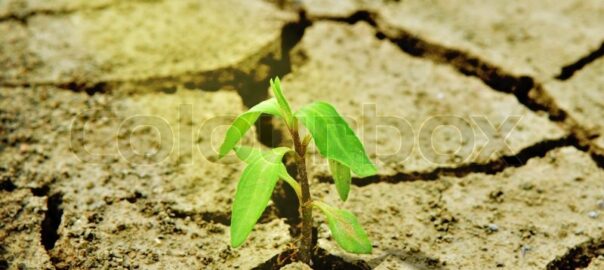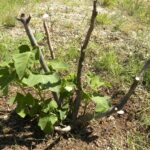When I was preparing to preach for the third Sunday of Lent and exploring the Lectionary texts, the words of the poet of Psalm 63 leaped out at me.
O God, you are my God, I seek you! My soul thirsts for you. My flesh faints for you as in a dry and weary land where there is no water.
I’m thinking this describes how many of us have felt over the past difficult months; through the last several (really) weird years. And now another horrific war raging in Europe. My faith in my God hasn’t really been shaken, but my faith in my fellow humans certainly has been.
There are many many things to grieve these days but, as a Christian, I admit much of my chagrin has to do with the perversion of faith I see playing out in much of American Christianity. I thought the unholy matrimony of faith and politics would fade away in time, but—no—it seems too many of my sisters and brothers are digging in their heels. I grieve all the ways the name of Christ is being taken in vain.
Our gospel reading this morning comes at the end of a long discussion about judgment and justice; about punishment and grace. Throughout chapters 12 and 13, Luke’s Jesus challenges the disciples and the crowds with surprising notions of who God is and what the kingdom of heaven is all about. Again and again, Jesus urges his listeners to get ready and stay ready for the coming reign of God.
You’ve heard all this many times before.
Nothing is covered up that will not be uncovered, and nothing is secret that will not become known.
Lk 12:2
Blessed are those slaves whom the master finds alert when he comes. If he comes during the middle of the night and finds them ready, blessed are those slaves. Truly I tell you, the master will . . . have them sit down to eat, and he will come and serve them.
Lk 12:37
If the owner of a house knew a thief was coming, he would be ready. You also must be ready, for the Son of Man is coming at an unexpected hour.
Lk 12:39
From everyone to whom much has been given, much will be required; and from the one to whom much has been entrusted, even more will be demanded.
Lk 12:48
And that brings us to our gospel text for this morning.
We hear some people in the crowd voice their concerns about a recent event involving the brutal governor, Pilate. In light of what Luke’s Jesus has been saying about judgment and justice, they want to know: what does this mean? Where is God in all these horrific events?
These may have been completely honest questions. There is, after all, so very much we do not, that we cannot, know about the workings of God in heaven and earth.
But then again, there’s a decent chance this group came with an agenda. There have always been—and always will be—people who ponder unfathomable mysteries and try to solve them with neat, tidy answers.
I know some of these people. I’ve had some of these conversations.
“So Jesus, did you hear about the man the police shot and killed because he was resisting arrest? He was Black, but that doesn’t really matter to me because I don’t see color. What I do see is that he must have been doing something wrong or else the police wouldn’t have shot him. Don’t you agree? Didn’t he get what he deserved?” *
And then Jesus preempts their next argument. “Are you also going to tell me that the hurricane that destroyed that city was because they were holding gay pride parades? Is that your idea of God’s justice? Do you think any of those people were worse sinners than you are?” *
No, Jesus says.
And he looks them in the eye; he looks each one of us in the eye and calls us to repent.
Now, I don’t know about you but I kind of take issue with Jesus here.
I’ve been in this dry and weary land, hungering and thirsting for righteousness, and what I find in my neighbors is self-righteousness. I need to see justice done in this world and I look around and see self-justification. What does he mean that WE are the ones who need to repent?
Well, it turns out Jesus is not done with me. He goes on to tell a parable, this one about a fig tree that hasn’t been bearing figs. The tree hasn’t produced any fruit in three long years. It had its chance, the owner figures. What good is a fig tree without figs? So time’s up. Let’s cut it down. *
I get that, don’t you?
Except—when I look at that tree and see myself.
Struggling, stressed, too many fruitless days when I don’t get hardly anything worthwhile accomplished. Impatient, snippy, muttering under my breath and calling people snarky names when I read the news. Perversely happy to wallow in the poor-me’s that keep dragging me down into cynical cycles of hopelessness. Turns out I have been producing my own version of perverted faith, self-righteousness, and self-justification.
The Self Curving In
Martin Luther, and Augustine before him, defined sin as “the self curving in upon itself.” As I say in my book, Living in The Story: A Year to Read the Bible and Ponder God’s Story of Love and Grace
This bending in upon ourselves is an embedded pattern that perpetuates itself from generation to generation. Awareness of these realities can spiral us down into despair. Or it can be the soil within which grace grows roots and redemption bears fruit.
Living in the story week 3 page 62
So I’m relieved when the gardener says: “Wait! Give her another chance. I’ll work with her. I’ll prune back some of those fruitless branches. I’ll root out the weeds that are sucking her dry. And I’ll fertilize. Let’s give her more time. I know she can come back from this barren place.”
Well, who knew that what I needed was a massive manure dump!
Who knew that all this sustained release manure we’ve endured these past years could help grow something healthy and good in our lives.
And why does that not surprise me. This is the God, after all, who brought light out of darkness and beauty out of chaos. This is the God who provided an ark of salvation to rise above the waters of destruction.
This is the Christ who transformed stumbling disciples into eloquent witnesses and confident martyrs. The Christ who took up his cross and walked straight into hell, trusting in God’s impossible possibilities.
For God’s people throughout countless years of The Story, dry and weary lands have been transformed into “soil within which grace grows roots and redemption bears fruit.”
This call to repentance echoes throughout all of Luke-Acts. Remember that Luke opened his story of the ministry of Jesus with the story of John the Baptizer calling the crowds to get ready for the coming kingdom. The fiery wilderness preacher thundered: “Even now the ax is lying at the root of the trees; every tree therefore that does not bear good fruit is cut down and thrown into the fire. So bear fruits worthy of repentance” (Luke 3).
The fruit of a repentant life, a life that is less and less curved in upon itself and more and more bent around the life of the Holy, this fruit, as Paul taught us, is generated by the sap of the Spirit coursing through every cell, creating new life on barren branches. Fruitful, productive acts of justice and righteousness that grow from love, joy, peace, patience, kindness, goodness, gentleness, faithfulness, and self control.
Because how does self-control grow anyway except in the experience of temptations? How does patient endurance grow except in the midst of trials? How do the tougher, resilient depths of love grow except in the presence of people? Even—and maybe especially—in the presence of unlovely, unloving people. ALL of us unlovely, unloving people for whom God gives unconditional love and for whom Jesus died.
The Prophetic Poet
“O God, you are my God, I seek you in this dry and weary land,” our psalmist professes.
These dry and weary lands that we pass through are absolutely real for us humans, but still the prophetic poet reminds us that something else is also real and true, another reality that is actually realer and truer than our human experience.
This other reality is the one to which we are invited to turn and orient our lives.
So I have looked upon you in the sanctuary,
beholding your power and glory.
Because your steadfast love is better than life,
my lips will praise you.
My soul is satisfied as with a rich feast,
for you have been my help,
and in the shadow of your wings I sing for joy.
Amen.
Sermon preached March 20, 2022 at Community Christian Church, Richardson TX
* Here’s the actual conversation in Luke 13 (NRSV): “At that very time there were some present who told him about the Galileans whose blood Pilate had mingled with their sacrifices. 2 He asked them, “Do you think that because these Galileans suffered in this way they were worse sinners than all other Galileans? 3 No, I tell you; but unless you repent, you will all perish as they did. 4 Or those eighteen who were killed when the tower of Siloam fell on them—do you think that they were worse offenders than all the others living in Jerusalem? 5 No, I tell you; but unless you repent, you will all perish just as they did.”
Then he told this parable: “A man had a fig tree planted in his vineyard; and he came looking for fruit on it and found none. 7 So he said to the gardener, ‘See here! For three years I have come looking for fruit on this fig tree, and still I find none. Cut it down! Why should it be wasting the soil?’ 8 He replied, ‘Sir, let it alone for one more year, until I dig around it and put manure on it. 9 If it bears fruit next year, well and good; but if not, you can cut it down.’”
Image of the fig tree comes from Diane’s Texas Garden in the South Hill Country.


This is brilliant!